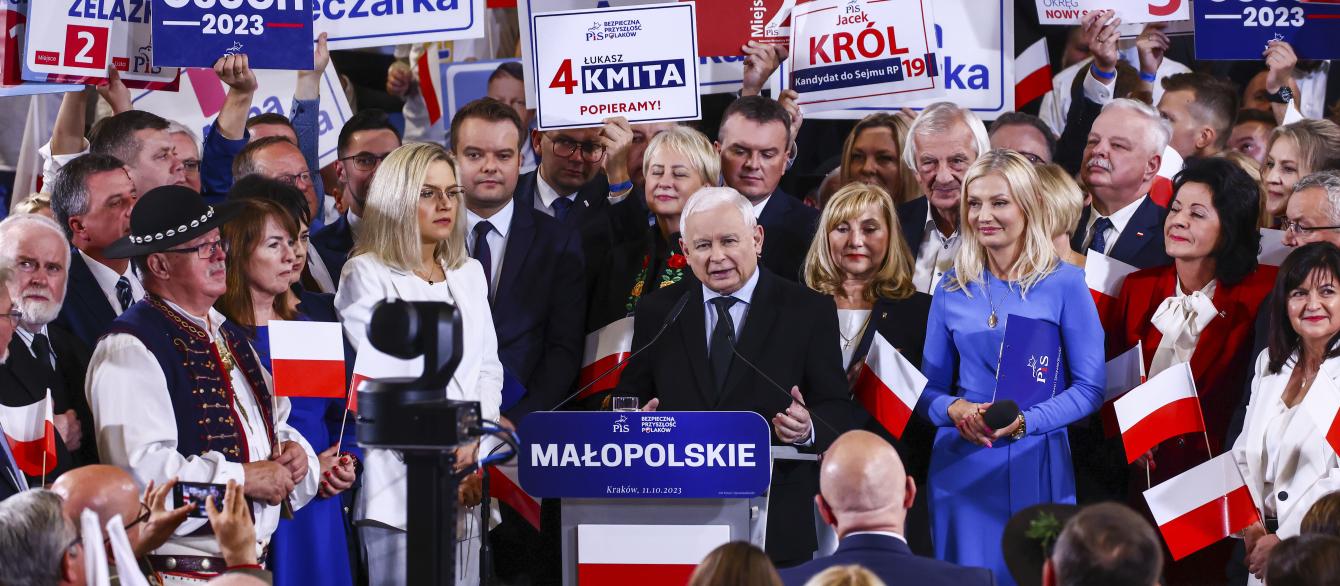This is an excerpt of an analysis published by Freedom House.
On October 15, Polish citizens will participate in a parliamentary election billed as the most important national poll since 1989. A cursory glance at Freedom House's assessments of Poland would suggest that a textbook example of a free and fair contest is imminent. But since the Law and Justice (PiS) party came to power in 2015, Poland has actually experienced the swiftest democratic decline in the region. The government has instituted legal changes to weaken the independence of the judiciary, while voters encounter a media environment increasingly affected by bias.
From Peak to Valley
It wasn’t always this way; a decade ago, Poland was a democratic exemplar, with “every election in postcommunist Poland … declared free and fair by international observers and domestic monitoring bodies.” But recent contests have fallen short. Organization for Security and Co-operation in Europe (OSCE) observers issued a dim report on the 2019 parliamentary elections, which were marred by the misuse of public funds and a media bias that “adversely impacted the opportunity of voters to make an informed choice.” That contest was also stained by extreme and discriminatory discourse.
Voters encountered more of the same in the 2020 presidential poll. Media coverage of opposition candidate Rafal Trzaskowski, for example, was far more critical than that of President Andrzej Duda. Duda also benefited from the trappings of office; as president, he could skirt COVID-19 health measures to meet voters.






